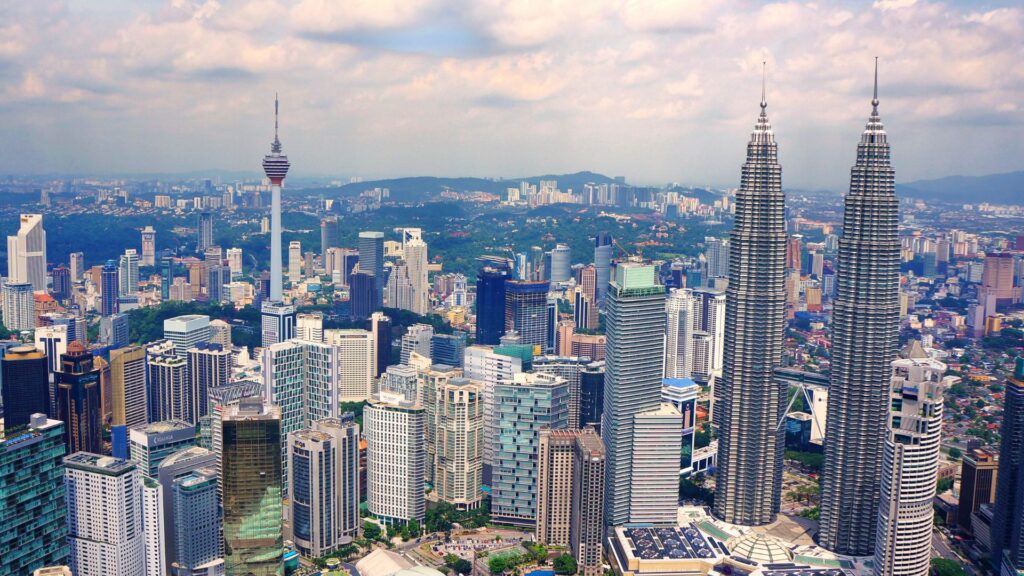
SINGAPORE, July 15, 2024 – Malaysia’s economic growth moderated last year to 3.6 percent amid a challenging external environment. In 2024, growth is expected to accelerate to 4.7 percent on resilient domestic demand and a recovery in external demand. Inflation is expected to moderate to 2.3 percent this year, but is subject to upside risks from fuel subsidy rationalization. The authorities are encouraged to stand ready to adjust monetary policy to contain any broader inflationary pressure, rebuild fiscal space through fiscal consolidation, and gradually build up foreign reserves when market conditions allow. This preliminary assessment was made by the ASEAN+3 Macroeconomic Research Office (AMRO) during its Annual Consultation Visit to Malaysia from June 25 to July 5, 2024.
The AMRO team was led by Principal Economist Runchana Pongsaparn. AMRO Director Kouqing Li and Chief Economist Hoe Ee Khor participated in the key policy meetings. The discussions focused on the risks and challenges facing Malaysia, and policy options to bolster economic growth, manage inflationary pressures, rebuild fiscal space and external buffers, as well as address long-term structural issues.
Economic developments and outlook
“After a moderation to 3.6 percent last year, Malaysia’s growth is projected to accelerate to 4.7 percent in 2024, underpinned by strong domestic demand and a pickup in external demand. Favorable labor market conditions and continued tourism recovery will support consumption, while realization of record-high approved investments and implementation of national master plans will boost investment,” said Dr. Pongsaparn. “Inflation is expected to moderate to 2.3 percent this year, but faces upside risks from the rationalization of fuel subsidies.”
The external position weakened in 2023 due to a smaller trade surplus and large portfolio investment outflows, which were partially offset by a strong recovery in tourism. Malaysia’s banking system remains sound with sufficient buffers to withstand macro-financial shocks. The ringgit weakened amid challenging external conditions and the strengthening of the U.S. dollar, prompting foreign exchange (FX) interventions by Bank Negara Malaysia (BNM) to mitigate excessive volatility of the currency. Repatriation of foreign investment income by Government-Linked Companies (GLCs) and Government-Linked Investment Companies (GLICs) as well as their conversion into ringgit has helped to stabilize the exchange rate.
Following monetary policy normalization that began in May 2022, the policy rate has remained unchanged since May 2023 amid easing inflation and an improvement in the growth outlook. Blanket subsidies and price controls have also helped to keep inflation in check, but came at a large fiscal cost. Higher corporate and personal income tax collection helped cover increased expenditure on subsidies and social assistance and narrowed the fiscal deficit to 5.0 percent of GDP in 2023.
Risk and vulnerabilities
The growth outlook could be weighed down by slower growth in major economies and potential adverse spillovers from the U.S. presidential election. The inflation outlook faces upside risks from global commodity price shocks and the government’s planned subsidy rationalization.
Challenges in the medium to long term could arise from global economic fragmentation, increased talent outflows, insufficient retirement savings, drag from aging population, and the transition to a low-carbon economy.
Policy recommendations
AMRO commends BNM’s commitment to a flexible exchange rate and its efforts to maintain orderly market functioning through market-friendly measures, alongside clear and consistent communication. These measures include coordinating with GLCs and GLICs as well as piloting a fast-track pre-approval reinvestment framework for corporates to encourage repatriation and conversion of foreign earnings. As FX interventions may be needed during periods of excessive volatility, BNM should continue to build up its foreign reserves when market conditions allow.
AMRO welcomes the authorities’ continued efforts towards fiscal consolidation. While RON95 subsidy rationalization will yield substantial fiscal savings, a phased implementation with effective communications is recommended to avoid large inflationary shocks and allow for policy impact assessment. Major tax reforms, such as the reintroduction of the Goods and Services Tax, are crucial for achieving fiscal sustainability over the medium and long term. The recent enactment of the Public Finance and Fiscal Responsibility Act is much welcome, and the authorities are encouraged to expedite the tabling of the Government Procurement Act.
Structural reforms to address long-term challenges, such as inadequate R&D spending and innovation as well as skill and talent shortages, should be accelerated to enable industrial upgrading and support the country’s ambition to move up the global manufacturing value chain. Comprehensive reforms are required to improve labor productivity to raise wages, expand pension coverage to the rest of the working population, and improve the adequacy of retirement savings amid an aging population.
The AMRO team would like to express its appreciation to the Malaysian authorities and other counterparts for their cooperation and insightful discussions during the mission.
About AMRO
The ASEAN+3 Macroeconomic Research Office (AMRO) is an international organization established to contribute toward securing macroeconomic and financial resilience and stability of the ASEAN+3 region, comprising 10 members of the Association of Southeast Asian Nations (ASEAN) and China; Hong Kong, China; Japan; and Korea. AMRO’s mandate is to conduct macroeconomic surveillance, support regional financial arrangements, and provide technical assistance to the members. In addition, AMRO also serves as a regional knowledge hub and provides support to ASEAN+3 financial cooperation.
